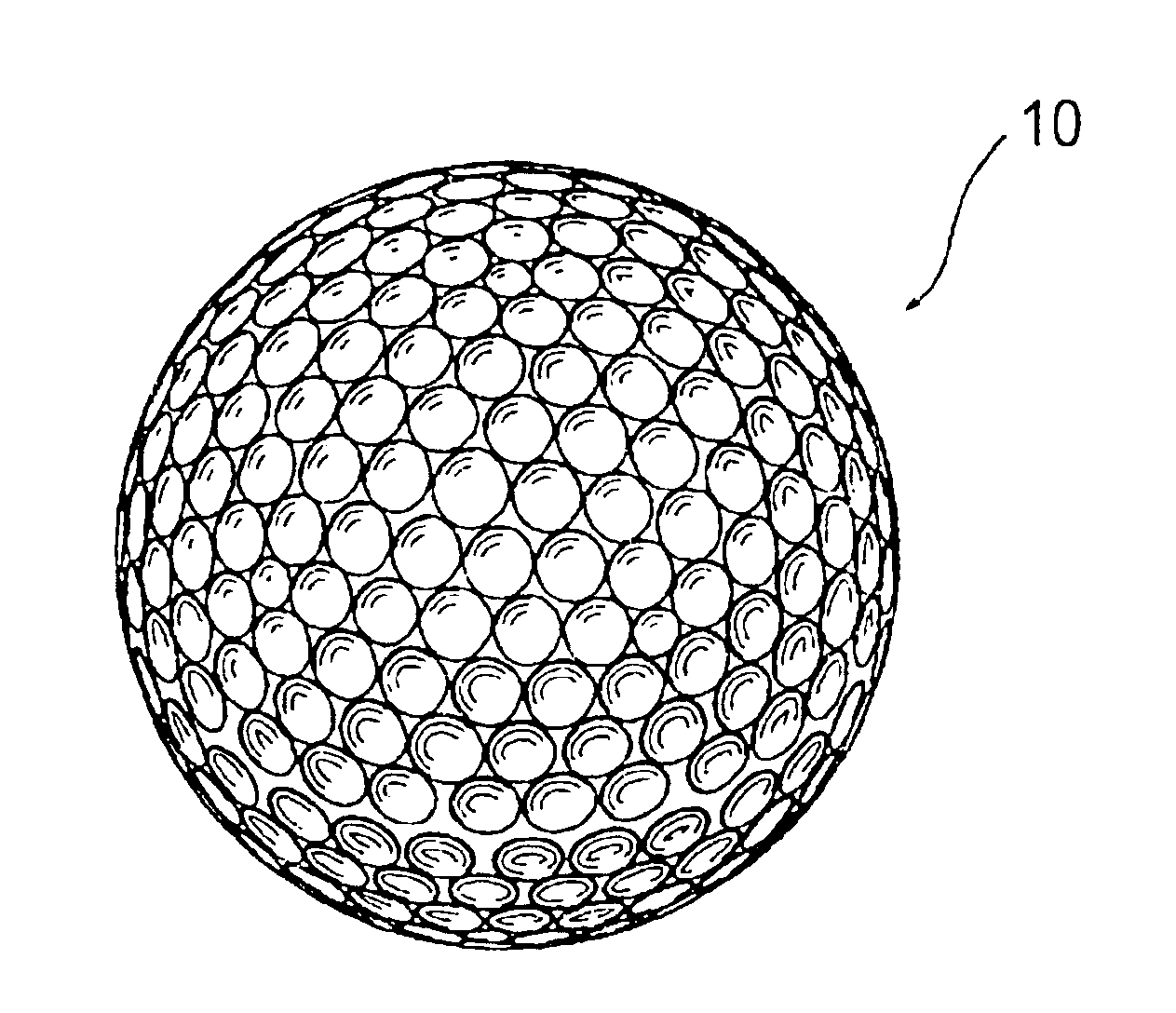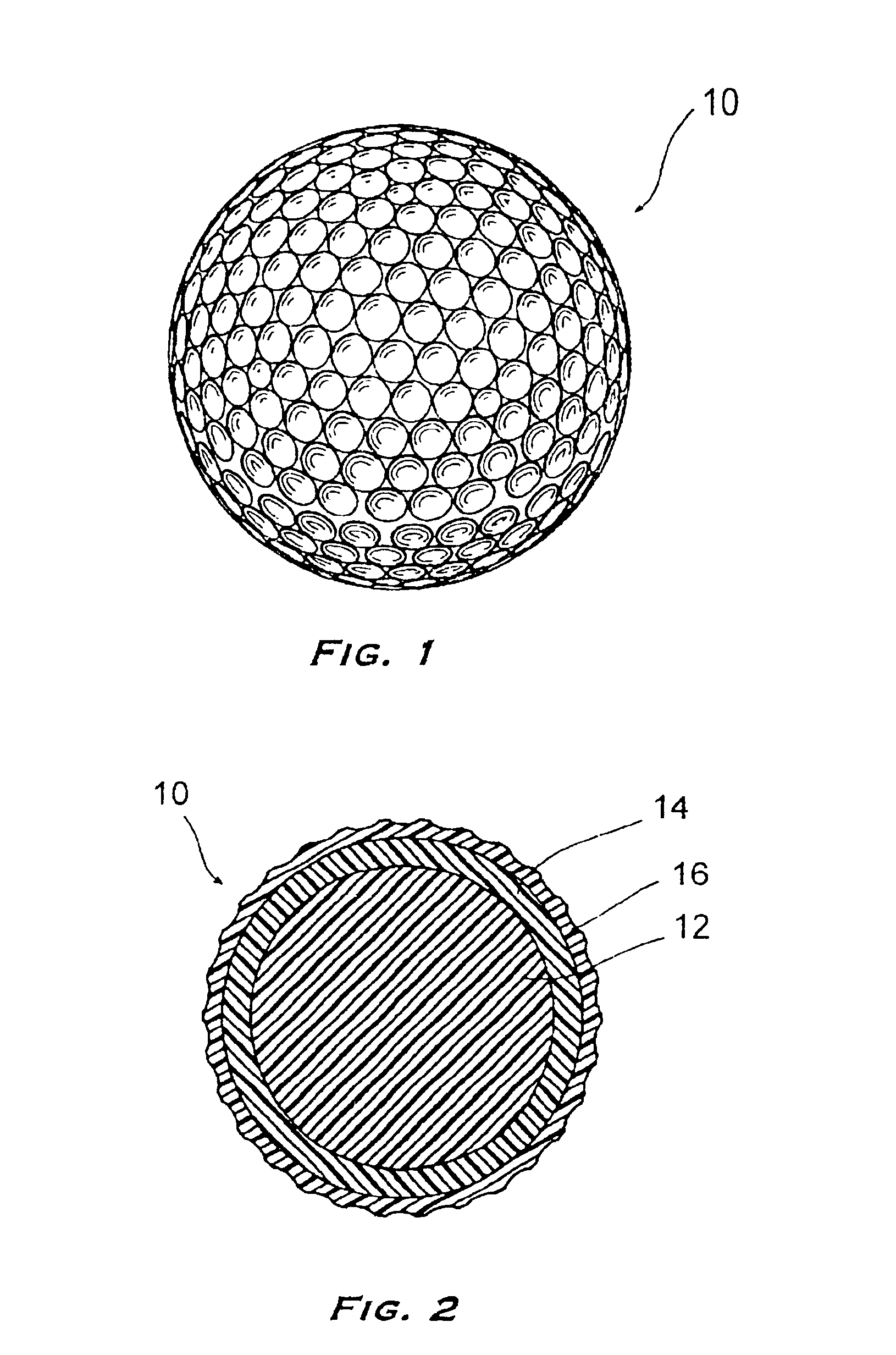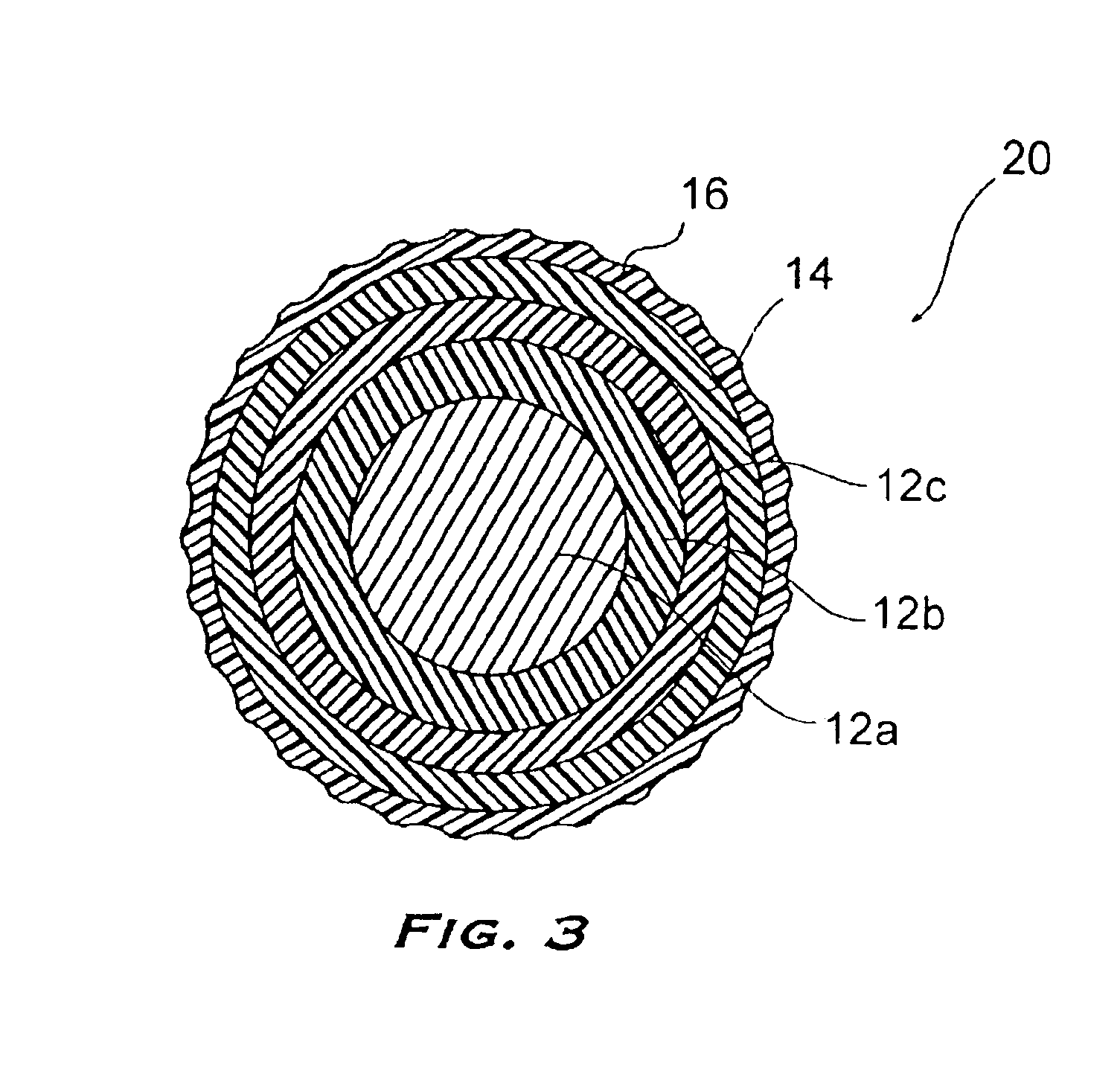Golf ball with vapor barrier layer and method of making same
a golf ball and vapor barrier technology, applied in the field of golf balls with vapor barrier layers, can solve the problems of reducing the resiliency of the core, affecting the performance of the material, and degrading the properties of the material
- Summary
- Abstract
- Description
- Claims
- Application Information
AI Technical Summary
Benefits of technology
Problems solved by technology
Method used
Image
Examples
Embodiment Construction
[0022]As shown generally in FIGS. 1 and 2, where like numbers designate like parts, reference number 10 broadly designates a golf ball in accordance to the present invention. Golf ball 10 preferably has a solid core 12, an intermediate layer 14 and a cover 16. Solid core 12 may comprise a single spherical element, or it may comprise a spherical element with one or more intermediate layers surrounding the spherical element. Solid core 12 can be made from any suitable core materials including thermoset plastics, such as natural rubber, polybutadiene (PBD), polyisoprene, styrene-butadiene or styrene-propylene-diene rubber, and thermoplastics such as ionomer resins, polyamides, polyesters, or a thermoplastic elastomer. Suitable thermoplastic elastomers include Pebax®, which is believed to comprise polyether amide copolymers, Hytrel®, which is believed to comprise polyether ester copolymers, thermoplastic urethane, and Kraton®, which is believed to comprise styrenic block copolymers elas...
PUM
| Property | Measurement | Unit |
|---|---|---|
| thickness | aaaaa | aaaaa |
| velocity | aaaaa | aaaaa |
| humidity | aaaaa | aaaaa |
Abstract
Description
Claims
Application Information
 Login to View More
Login to View More - R&D
- Intellectual Property
- Life Sciences
- Materials
- Tech Scout
- Unparalleled Data Quality
- Higher Quality Content
- 60% Fewer Hallucinations
Browse by: Latest US Patents, China's latest patents, Technical Efficacy Thesaurus, Application Domain, Technology Topic, Popular Technical Reports.
© 2025 PatSnap. All rights reserved.Legal|Privacy policy|Modern Slavery Act Transparency Statement|Sitemap|About US| Contact US: help@patsnap.com



